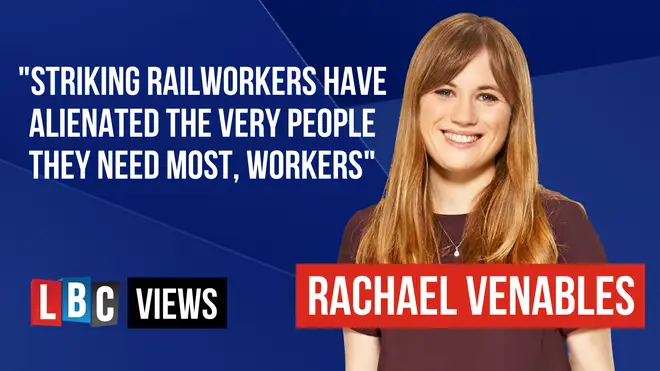
Ali Miraj 1pm - 4pm
20 June 2022, 13:31 | Updated: 20 June 2022, 13:41

For some journalists there's nothing worse than the dreaded 'vox pop;' stopping people at random with a microphone to get their opinions on a topic in the news.
But, every now and then, the technique gives you a brilliant insight into the views of the general public.
Recently, as the national rail strikes loomed ever closer, I've been dispatched to train stations across the capital to report on the latest lines, whilst getting commuters' views.
And this time, more than on any other story, I've noticed a clear and glaring divide.
The middle classes, office workers, men and women in sharp suits commuting to the City, were consistently supportive of the walkouts:
"Yes it's annoying, but if they think they need to strike then that's their right."
"Strikes are meant to be disruptive!"
And, post-Covid, it makes sense.
In this world of remote working, most office workers have proved they can comfortably do their jobs from home, with many employers warning staff outright to not even try to commute in this week if they rely on public transport.
Moreover, if you have a secure position and an annual wage, being a bit late in because the train was cancelled or the bus full, won't cost you pay.
By contrast, there were the people I spoke to who are clearly struggling most in this economy; the ones who, you might think, wouldn't most emphasise with a workforce fighting for job security and a pay rise.
They were in uproar:
"They should sack the lot of them"
"I haven't had a pay rise, why should they?"
We're talking here about shift workers, cleaners, construction workers and electricians, who made it clear to me in every single interview that they cannot work from home, and if they can't get into work, they don't get paid.
I spoke to men planning to take unpaid holiday, dropping shifts to get their children to school, and workers who were weighing up whether they could even afford to drive into London, given the costs of fuel and fees like ULEZ and the Congestion charge.
And here lies the fundamental problem facing the strikers.
They’ve alienated huge portions of the working population who have no choice but to travel to work, and who will suffer financially if they don’t.
That’s why Labour has come so unstuck, unable and unwilling to either denounce or support the strikes.
Meanwhile, the work-from-homers can ambivalently support the action, because, in this post-Covid world, it doesn’t really hurt them.
But, their lack of reliance on the railways and reduced commuting patterns, is exactly why the train companies are in such a financial crisis in the first place.